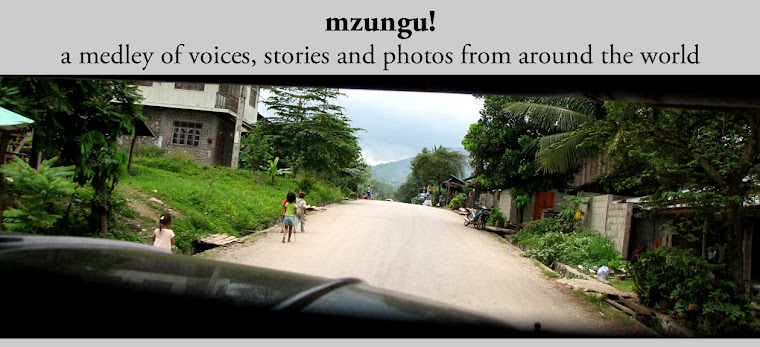Mouths drop open in shock as he reads the last line: “He concluded he preferred someone similar to him. / He preferred his own sex.”

This is a meeting of the Lantern Meet of Poets, and the author of this poem, Esther Semakula, says she wrote the poem to play with people’s expectations. “I’m a person who loves to dwell on controversial things,” she says. “Poetry is an expression of people’s thoughts and feelings.”
The Lantern Meet of Poets began meeting in April 2007 with four poets who were passionate about raising the level of writing in Uganda and restoring the value of writers. Now their membership numbers over 60 young poets from different walks of life, and more keep coming every meet.
For the bimonthly meetings, poets bring original poems either based on a theme like identity, love, poverty, or war; or based on a specific structure like sonnets, metaphorical poems, or a specific rhyming scheme. The poems are mixed up and passed out to readers anonymously. A reader recites the poem while the others listen carefully, they critique it with detailed comments, then the moderator asks the poet to come out, and he or she makes final comments on the piece.
“There’s a tendency to be soft on yourself,” says member Gome Emmanuel. “Critique helps you to grow as a writer.” Gome started coming to the meets two years ago and is now a core member. “My poetry has grown,” he says. “I’ve learned to challenge myself. It’s like a crucible—forcing you to get the best out of yourself.”
Peter Kagayi joined the group six months ago and also says his poetry has changed by “leaps and bounds” since then. Before, the only audience for his writing was his family. He had no other avenue. But now he realizes how much he loves poetry. “I understand poetry. It was a hidden talent,” he says. “From that day I’ve never missed a single meet.”
But it’s not just the poetry that changes. Members say writing and reading poetry together also affects their personal beliefs. “When we come and talk about it, my mind is affected and I change the way I think,” says Kagayi. “There’s this general aura of acceptance.” Semakula adds that the meeting on Sunday opened her eyes to different perspectives on the topic sex and sexuality. “It is sex, but we all perceive it in so many different ways,” she explains.
When members bring up harsh critiques, they are able to separate the content of the poem and its stylistic attributes. “I think I like it,” says one member. “It makes all the senses come alive.” Another adds, “The author is writing from very powerful Greek illusions that give it that epic, ancient feel.” Some talk about the structure of the poem while others consider how the audience will react to the work.
The Lantern Meet of Poets occasionally takes its work beyond the Sunday circle of chairs. They are compiling an anthology of their best poems that they hope to publish within a year at a major publishing house. They hope to reach out to schools with poetry workshops and public readings. They also hold free recitals for the public at the National Theatre.
The recitals highlight the best work of these young poets, and show us all that, as Gome says, “Poetry is the thing of the future.”




No comments:
Post a Comment